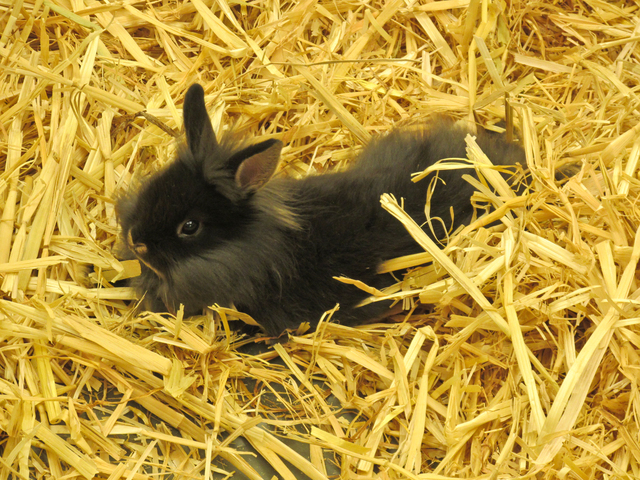How to take Proper Care for Your Pet Rabbit

Caring for a pet rabbit is a rewarding and special responsibility. Domesticated rabbits need adequate housing, a nutritious diet, regular veterinary check-ups and grooming. Equally as important, they need lots of love and attention.
Here’s a look at some of the fundamental needs of rabbits so they can live a happy and healthy life.
Housing for Pet Rabbits
Traditional outdoor rabbit hutches are typically too confining for rabbits and fail to meet their needs. A cramped, restrictive cage limits their movement which can lead to both behavioral and spinal issues. Also, wire or hard floors often produce sore hocks and foot problems. Also check out How to Buy Pets Online in Bangladesh?
The Perfect Outdoor Rabbit Hutch
An ideal rabbit hutch has a run with enough room for the rabbit to fully stand on its hind legs and a sufficient amount of space to move freely – able to take three consecutive hops at the very least. Here are some other elements that make an ideal rabbit hutch:
• Has a solid floor and solid sides to provide shelter for sleeping and hiding. The floor itself should be properly lined with soft, absorbent material for bedding such as hay, grass, straw, or scent-free wood shavings and be cleaned every day – provide a litter tray for toileting purposes. The floor should NOT be made of wire.
• Provides adequate shelter from extreme Bangladesh temperatures including rain and wind. The roof should be sloped and solid in order to protect the animals from the weather conditions and be hinged for easy access for cleaning. The structure should not rest on the ground, but somewhat raised so it doesn’t get damp. Place in a partly sheltered area of the garden with ample sunlight (preferably morning sun), but also protected from heat and wind.
• Must be built from certain materials that are chew-proof and easy to clean. Clean and scrub the hutch on a weekly basis.
• Needs to include feeding bowl, water bottles, chew toys, and hayrack to enrich its environment in addition to wooden toys, tree branches, and cardboard boxes.
• Needs to be properly ventilated. Sides made of wire mesh provide excellent ventilation and good light along with protecting pets from mosquitoes and other bothersome insects.
NOTE: Severely confining a pet rabbit too long in a hutch is not ideal, and could actually harm them. Nowadays, a number rabbits live in the house, or at least have access to the indoors so they’re included in daily family life.
How Much Should Rabbits Exercise?
A pet rabbit should be allowed to exercise every day outside of their enclosed environment (hutch) – preferably a minimum of 4 hours or more to roam freely about. In addition to preventing any negative behavioral issues, exercise will help prevent spinal problems and obesity as well as ensuring their gut is healthy.
Never leave a rabbit unsupervised outside of the cage since they are more vulnerable to predators or perhaps escape when let loose. An enclosed space with attractive garden shrubbery or wooden logs can be placed or built around the rabbit’s hutch to provide a safe place for them to roam, exercise, and hop around in the grass.
Indoor Housing
Rabbits are known for easily adapting to inside habitat and are quite suited to calm, quiet households. Contrary to what most people think, rabbits make better pets for adults than children. After all, they’re a prey animal, which means they’re naturally cautious and rather timid. They do, however, enjoy affection since it helps them feel secure. They’re not particularly fond of excessive handling, but respond better to ground level affection instead.
If a rabbit is a house pet, the home needs to be properly “rabbit-proofed” in order to protect them from electrical cords and potential shock. Also, remove any toxic plants and prevent access to certain areas that may seem unsafe. Always encourage them to chew on their own toys, clean cardboard boxes, or other unpainted wood sources.
Rabbits can be successfully trained to use a litter tray, particularly for urinating. However, it’s typical for rabbits to leave droppings here and there. Just clean them up and place some of them in their tray in order to encourage them to use it the next time.
Feeding Time
For rabbits, the most frequent cause of the gastrointestinal disease is a poor diet. Most commercially available foods for rabbits are actually unsuitable for a rabbit’s diet. They’re far too concentrated in unhealthy fats and heavy carbohydrates and also lack adequate levels of good fiber.
The Primary Diet of Rabbits
• Grass or meadow hay should be offered to rabbits at all times. Most types of grasses are acceptable (not grass clippings since they’re often moldy), in addition to various garden weeds. Lucerne hay can be offered in very small amounts, but not as the primary source of hay since it’s too rich in calcium for rabbits.
• Fruits should be provided on occasion as a special treat – oranges, apples, strawberries, and pears, only a few tablespoons per day per rabbit.
• Offer a wide variety of vegetables, particularly green leafy ones like spinach, bok choy, brussel sprouts, cabbage, and cauliflower. Rabbits also love broccoli, pea pods, carrots, various lettuces, herbs, sprouts, radishes, and spring onions. Some people suspend carrots from the top of the cage in order to occupy the rabbit and increase their amount of time spent eating. Avoid feeding them corn, potato peels, beans, or rhubarb.
• Feed rabbits limited amounts of pellets and avoid rabbit mixes altogether.
• No supplements or salt licks are necessary.
• Branches and twigs from trees are healthy for rabbits to chew on.
• Rabbits require fresh water 24/7 in a clean bowl that can’t be tipped or knocked over. Some water bottles are designed to hang onto the side of the animal’s cage. Remember that rabbits are quite susceptible to heat stress, especially in some areas of the sultry Bangladesh climate. Therefore, they should either be kept inside or at least in the shade out of the sun. Offer them frozen water bottles during extreme heat so they can snuggle up to them and cool off since rabbits cannot sweat.
Companionship
Most rabbits are highly social animals, so letting them dwell with other rabbits is generally a good idea. Rabbits of the same gender, or neutered rabbits, can ideally be housed together. Keep in mind that any introductions should be closely monitored since rabbits can sometimes inflict severe wounds on one another. Know more about Buying and Selling Pet Animals in Bangladesh.
Grooming
Besides enjoying a thorough brushing, grooming a rabbit on a regular basis is vital to its overall well-being and health. Long-haired rabbit breeds need brushing daily in order to eliminate excess hair and to prevent hairball development – rabbits can’t throw up and hairballs are a known culprit in causing intestinal obstructions. Grooming your rabbit every day can also reveal any problems early on.
Desexing and Vaccination
All pet rabbits in Bangladesh should be vaccinated against RCD (rabbit calicivirus). Unfortunately, RCD is nearly always fatal with death occurring rather quickly, just 12 to 18 hours later, from heart and respiratory failure. Currently, there is no treatment for RCD. So, pet rabbits should be vaccinated at the vet approximately 10 – 12 weeks of age. At this age, only one dose is necessary. Afterwards, yearly boosters are essential for ongoing protection from the disease.
Rabbits and Cancer
Statistics show that 80% of all female rabbits will in fact develop uterine cancer unless they are spayed, and is therefore highly recommended. In addition to preventing cancer, it diminishes their aggression, allows them to cohabitate harmoniously, and facilitates housetraining of pet rabbits indoors. Desexing of both female and male rabbits is strongly suggested at approximately 5 or 6 months old.
Similar to pet dogs and cats, a pet rabbit requires an annual check-up to ensure they maintain a healthy lifestyle. The check-up can be conveniently performed at the time of their annual RCD vaccination. While you’re there, have your vet clip your rabbit’s toenails and file their teeth if necessary.
This guideline will help you give your pet rabbit the best environment possible that’s safe as well as keep them happy.
Planning to buy a rabbit then Buy it from Bikroy.com.
| Rabbits for Sale in Dhaka | Rabbits for Sale in Chattogram |
| Rabbits for Sale in Dhaka Division | Rabbits for Sale in Khulna Division |
| Rabbits for Sale in Sylhet | Rabbits for Sale in Chattogram Division |





